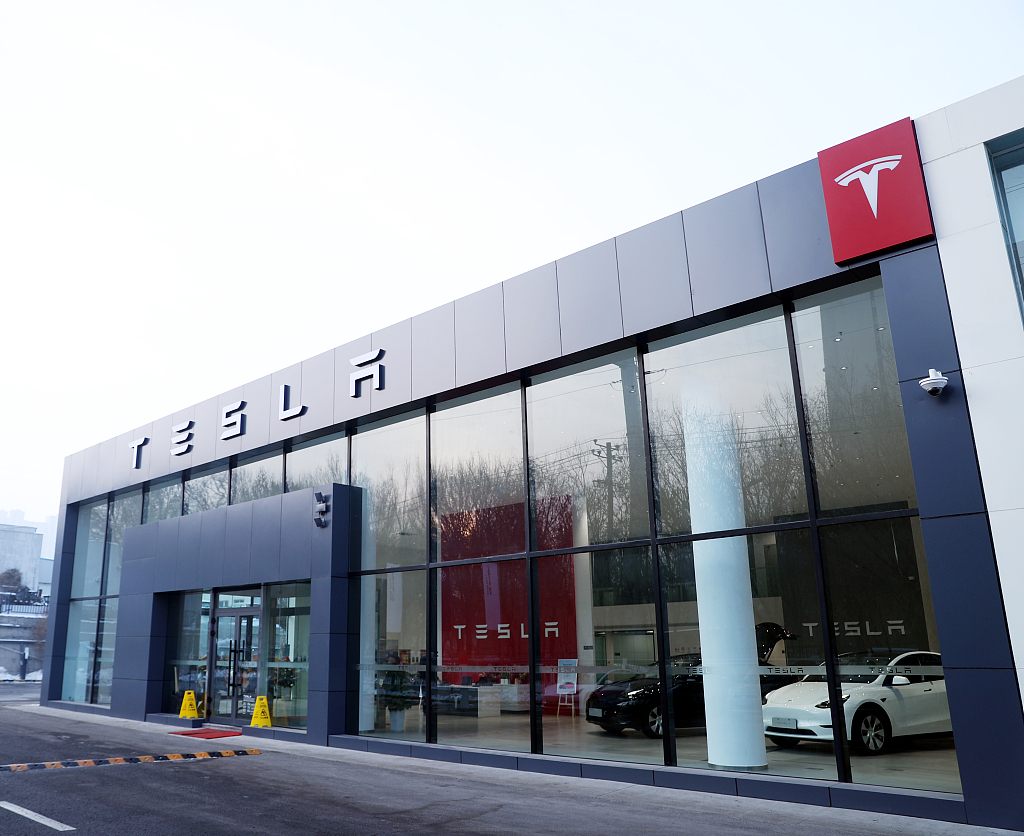The face of forced labor: A business force lost?
- By Li Fangfang
 0 Comment(s)
0 Comment(s) Print
Print E-mail Beijing Review, January 18, 2022
E-mail Beijing Review, January 18, 2022

"Elon Musk" and "Xinjiang" together grabbed global headlines in early January, as his electric car company Tesla opened its newest showroom in Urumqi, capital of Xinjiang Uygur Autonomous Region—much to the dismay of Washington and human rights activists alike.
The company's notice came less than two weeks after U.S. President Joe Biden had signed into law the Uygur Forced Labor Prevention Act, the climax of unfounded U.S. accusations of human rights abuses in Xinjiang.
Following up on former President Donald Trump's measures targeting Xinjiang cotton and tomato products, banning these from entering the American market in early 2021, Biden effectively expanded that category to include all Xinjiang-related goods, tantamount to forbidding any American companies to do business with or use products from the region.
Many American companies with business in China, or Xinjiang specifically, tend to get caught between their Chinese market and U.S. political stance. Yet Tesla's drive into Xinjiang at this time may provide them with some fresh, helpful insights.
Tesla boasts to be a champion in the green drive, while Xinjiang has been a pioneer in China's new energy ambitions. The region's wind and solar power generation hit 2.2 trillion kWh in 2020, accounting for 29.5 percent of the country's total electricity consumption, according to Xinhua News Agency, giving steam to the country's commitment of peaking its carbon emissions before 2030 and achieving carbon neutrality before 2060.
The region, like many an American state geographically, is vast in its territory, with driving the main choice of local transportation. What's more, as a top tourist destination, Xinjiang's visitor arrivals reached more than 300 million in 2019. Despite the pandemic impact, this number still topped 150 million and 190 million in 2020 and 2021, respectively. Many visitors opt for the road trip experience, given the extensive drives between picturesque places and the breathtaking scenery along the way.
As consumers today are becoming more aware of pressing climate issues and more accepting of cost-effective new-energy vehicles (NEVs), lifted by the advancements in technology and infrastructure construction, Xinjiang's NEV sales saw a 250-percent year-on-year growth in 2021. In Urumqi alone, NEV registrations jumped 4.5 times last year—to 3,800 from 2020's 846, Xinjiang Uygur Autonomous Region Tax Service, State Taxation Administration reported. Ahead of its showroom's grand opening, Tesla had already established two supercharging stations and 14 supercharging piles across the city. This number stands at seven and 36, respectively, across the entire region.
Compared to several Chinese NEV makers, Tesla is a latecomer to Xinjiang. The country's NEV champ BYD has three retail outlets in Urumqi; the Youhao business district downtown features Tesla in competition with Li Auto, XPENG and NIO, three emerging but fashionable brands. XPENG sold nearly 100,000 cars in 2021 nationwide, for example.
During an Urumqi auto fair from December 30, 2021, to January 3, NEVs proved a visitor highlight, with most hailing from domestic companies. Mercedes didn't have any of these cars on display; BMW only showcased one hybrid SUV. These are just two examples of foreign brands with a longstanding business history in China who seem to have fallen behind the times—those of Xinjiang's swiftly moving NEV market, in particular; but local consumer expectations remain high.
Right now, Tesla has stores in 60 cities across the Chinese mainland. The Urumqi location marks the westernmost Tesla presence on the Chinese mainland.
When geopolitical coercion causes entrepreneurial confusion… One man's loss can become another man's gain.






Go to Forum >>0 Comment(s)